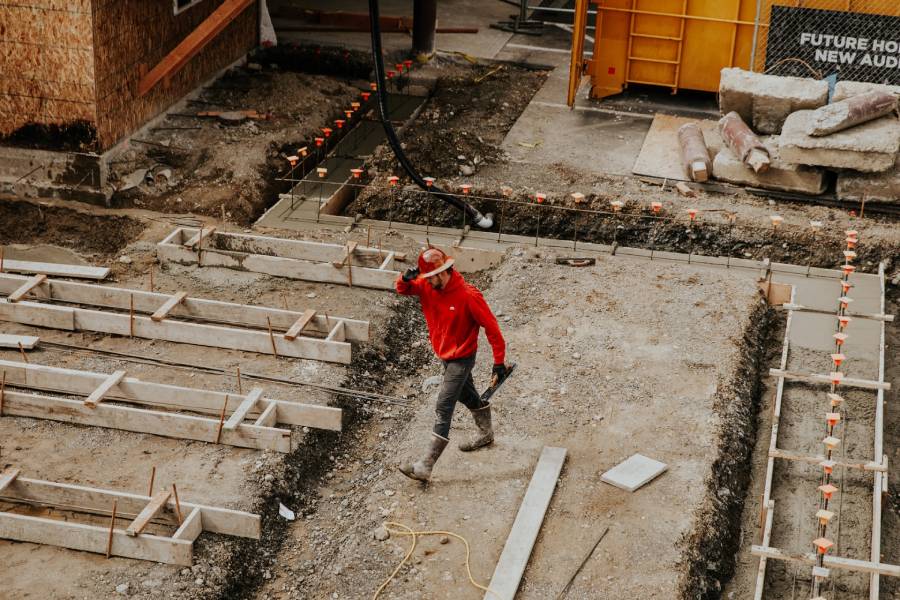What is a contractor surety bond? The short answer is that it’s an “insurance” safety product that guarantees to someone who has a construction project that the contractor they hire to complete the project, will actually complete the project, complete it within an agreed time frame, and complete it to the specifications in the agreement. It’s important to note that a contractor surety bond is not an insurance policy and that a contractor who wants to protect themselves from liability associated with their operations needs a separate contractor or construction insurance policy, which ALIGNED Insurance can help with too!
Contractor Surety Bonds – Who Are the Players?

In a contractor surety bond, there are three parties involved:
- The Obligee. The Obligee is the name for the contract owner, private projects, the one looking for someone to complete their construction project on time. This can be anyone who needs a construction project completed but for the most part, this will be public sector projects for government agencies or commercial construction projects for private companies. More on that below.
- The Principal. The Principal is the contractor or the construction company and project owners that will ensure the completion of the project.
- The Surety. The surety is the insurance company that guarantees the Obligee that the work will be completed as promised by the Principal by offering financial compensation as collateral if the Principal fails to complete the contract obligations as required.
Let’s take a brief look at the interests of each party to a contractor surety bond:
The Obligee
The interests of the Obligee are fairly obvious. A company or government agency needs to know that the construction company contracted to complete the project will complete it on time and cost as agreed to.
The saying “time is money” is especially true for project owners in construction. For a private business, the structure they want built is an investment that only starts generating cash flow for them when it’s finished and finished properly so they can start renting out units or charging people for parking.
For government public projects, building infrastructure using taxpayers’ money also means that time and accuracy are of the essence. If something goes wrong, the publicity would be terrible and the public would be outraged, so they need to protect the taxpayers, and themselves. The government also has a duty to ensure that subcontractors, the construction workers hired by the Principal to do the work, are paid and paid on time. For government projects over a certain dollar amount, a contractor surety bond from a bonding company is legally required.
More and more, homeowners and small business owners are insisting that the person or company they hire to to do major renovations, installations, building projects etc. has a contractors surety bond or is otherwise bonded. With too many contractors leaving projects unfinished or poorly done, contractor surety bonds provide consumers with peace of mind.
The Principal
For the Principal, or contractor, a contractor surety bond is like a badge of honour – its validation that they are a reputable company that can, and has, delivered on similar contracting projects in the past. Contractors who are bondable usually use that fact in their advertising as a way to promote themselves as trustworthy and reliable professionals with a proven track record of successfully getting the job done. A contractor surety bond is a way for contractors to stand out from the crowded field of competitors and allows them to bid on bigger projects where contractor surety bonds are always required.
The Surety
For the Surety, or the “insurance” company, they provide a coverage service to both the Obligee and the Principal for which they, obviously, charge a fee (usually around 1% of the contract value). For this fee, they do two things:
- They thoroughly vet, or check, the principal by doing a background check on previous work completed as well as taking a look at the Principal’s financial records to confirm that they have the finances or ability to get financing to complete the project. This is just a summary, the actual process is more involved.
- They risk their own capital by using it as collateral in case the Principal doesn’t complete the project as required.
What Happens if the Principal Doesn’t Complete the Project?
In a situation when a principal fails to complete a project as agreed to, the Obligee can cash the bond and receive financial compensation for the work not completed or to fix any work done incorrectly. If that happens, the Principal is legally responsible to pay the Surety (insurance company) back for the money paid out.
That said, the project completion is in everyone’s interest so the parties involved will try to find another construction contractor to finish the project.
How Does a Contractor Get a Surety Bond?
If you’re a contractor who hasn’t been bonded before, check out our How Do You Get A Surety Bond For The First Time? page.
Otherwise, you can contact an ALIGNED advocate or get started right away by using our free online tool.



